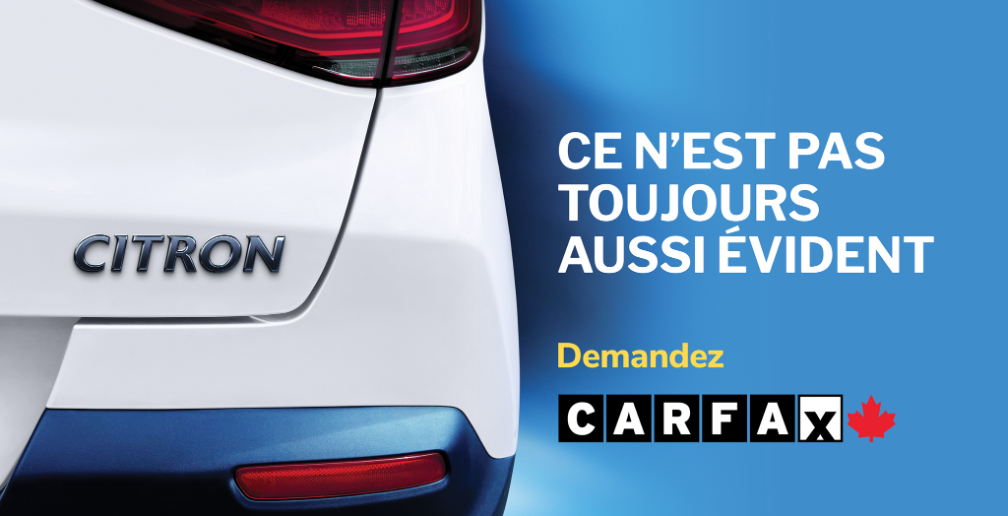on parle

Sunny days are back
March 2023
March. Spring is just around the corner. The days are getting longer and the maple harvest will soon be in full swing. In Québec, although we live with the seasons, there is no better feeling than the sun shining on your skin and seeing trees blossom. While we wait for sap to drip and everything delicious that comes along with it, here’s what’s worth mentioning advertising-wise, communications-wise, and human-wise(in our humble opinion).

ChatGPT : Artificial synergy?
These days, we hear about ChatGPT at every turn. ChatGPT is a language model powered by artificial intelligence and developed by Open AI. People are finding unexpected ways to use it, in all kinds of areas, leaving the door open for the software’s multiple functions, including copywriting in every conceivable style and field.
Uncovering ChatGPT’s array of talents have come with a loaded question: do its writing skills give it enough power to threaten the advertising industry?
It goes without saying that the tool is proving itself to be able to write impressive texts, especially when given specific instructions. It can produce an adequately structured and readable text with all the relevant information. This is not an understatement, considering the fact that ChatGPT is a software − let’s keep in mind that all those skills take time to acquire and are not a given for everyone! However, its texts lack impact. They communicate the essential, but nothing more. In other words, they don’t even come close to the texts of an experienced copywriter.
The software seems to agree, too:
“As an AI language model, I am able to generate answers and analyze data, but I don’t have the creativity, empathy [or] critical thought of a human being.”
That being said, ChatGPT could certainly be used in conjunction with advertising companies’ existing resources; while the software isn’t able to develop a complete concept that would knock our socks off (yet!), it performs assigned tasks with ease. ChatGPT is able to generate a text with a healthy and strong basis on which a copywriter can build, saving time and work.
Let’s not forget that the translation industry has already been facing the same issues. With software like Google Translate and DeepL, will translators be able to earn a living?
Nonetheless, since the very beginning of machine translation (which dates back to the Cold War, believe it or not), translation has remained a healthy and growing industry. We could even say that there is a shortage of translators!
All things considered, ChatGPT won’t be replacing anyone anytime soon but it remains an interesting tool for advertising companies. Let’s see where the future will take us!
- Audrey Deshaies, Head Translator-reviser

CRTC: Québec Voices its Concerns over the New Bill.
The C-11 bill proposing amendments to the Broadcasting Act is an initiative that is highly anticipated by Canadian cultural institutions, especially in Québec. The media and communications landscape has changed over the last thirty years. However, in Canada, the most recent law legislating broadcasting dates back to 1991!
Québec’s institutions are looking to expand Québécois content as well as cultural and linguistic affiliation to French through productions. Many decisions and actions taken by the CRTC are not seen as beneficial for and by Québec’s institutions, who do not feel represented by the federal organization. The needs in Québec are specific and not sufficiently emphasized by the CRTC.
Over the last few years, many hot spots have emerged, particularly concerning streaming services. Considered to be a new media, streaming content is not necessarily subject to CRTC regulation, whose oversight is not as powerful as it is on traditional media. However, access to streaming distribution systems and platforms, such as Spotify, Netflix, Disney+, etc., on Canadian territory causes injustice in content legislation. The idea behind an amendment such as the C-11 bill is to include Internet giants in legislation and have them participate in cultural representation. For many years, Québec has sought to regulate streaming and on-demand platforms to ensure that original local content does not lose market share.
The goal of this legislation is to allow local content to gain momentum and to preserve its broadcasting (or streaming) priority within its territory. Despite the federal government’s many attempts to legislate, agreements with players like Netflix were largely criticized in Québec, as they did not consider representation of the francophone and Québécois population.
American streaming platforms control the market, and a large percentage of Québec’s youth no longer watch traditional television. So, it is essential that Québec expands its presence and visibility on the streaming platforms that are available on its territory to ensure the industry’s prosperity. The situation has led the Québec government to demand an oversight on content, in order to preserve Québec’s cultural and linguistic specificity. We could be witnessing the early stages of a provincial institution for content regulation or to a crucial step in the legislative process.
- Noëlie Michaux, Project Manager

When language becomes a driving force for success
Culturally speaking, language is fundamental to every nation. On its own, language becomes the very distinction that reinforces the notion of identity. Expressions, accents, discourse, and lexical variations are specific to each community, thus establishing a cultural and social identity. Otherwise, how else would you explain how easily distinguishable English and American accents are, or Québécois and French? So, with the right word choices, the added value of language to convey a message should never be overlooked and is even more relevant when targeting a specific group.
Given this, it is interesting to consider the topic of dubbing within the cinematic world and even in advertising. Nothing is more authentic than a movie in its original language. Why? Because it is seamless. Language, facial expressions, lip movements, gestures and expressions are in harmony with the staging. Directors make decisions that are rooted in a given culture and offer an authentic visual and artistic flair. Have you ever watched a dubbed movie or series and were able to perceive a delay or even had the impression that the essence of original content had been lost? The same applies to advertising. It’s no coincidence that we always reinforce the idea that language is a pillar and that any advertising messaging should be conveyed in the target audience’s language. Beyond a simple translation, the cultural aspect has to be considered; that is where adaptation can render an even more relevant message.
It is precisely by drawing on the linguistic and cultural discrepancies of dubbing that the series “Complètement Lycée” has gained its success locally and internationally. The series parodies American teenage shows and was shot in English, so that the actors could dub it in an international French, to imitate bad translations. The linguistic and cultural discrepancy is so absurd that it is funny, and the critics love it. Thus, not only is language a driving force for success, it is also an international spotlight for our craftspeople! That is the perfect example to illustrate the power of language. If it can be praised in films, imagine the effect your ads can have when you choose the localization path!
- Catherine Léger, Project Manager

Opening to the World in a New Way
It’s no secret: the Québécois are a proud nation. But proud of what exactly? The answer lies in our seven filters, the foundation for the shop’s existence: our language, our culture, our heritage, our star system, our media landscape, our market’s reality, and our market-specific advertising rules (though they sometimes make us curse). And, right below our seven filters, there’s creativity.
Creativity, something for which Québec’s craftspeople are often internationally praised. Just think about the two Grammys recently won by Maestro Yannick Nézet-Séguin, or Arcade Fire (Best Alternative Music Album category) and Xavier Dolan (Best Music Video category) who were also nominated during this year’s Grammys.
We may be interested in what our own are doing abroad, but it does not mean that everything that is going on overseas draws our attention. Not so long ago, we could even hear that Québec was closed on itself, that it was not concerned with anything other than what happened inside its borders, unless it involved one of its own people.
However, this trend seems to have been overthrown since the start of the pandemic (yes, that again!) When we realized that the vaccination rate and health measures in other countries had an impact on the spread of a deadly virus, we were suddenly more open to what was happening overseas, or even in the rest of Canada, as well as with our neighbours to the south.
Abortion rights, the war in Ukraine, inflation, climate change, the nuclear threat, the Chinese surveillance balloons, to name a few, are all issues that have affected us. The Québécois are not solely aware of international news, they are aware of their influence. We call it the internationalization of problems.
Whether we see this awareness in a positive or negative light, it seems to be here to stay. As for the advertising community, and especially here at the shop, it will... adapt.
- Joëlle Fournier, Managing Director Localization

The Importance of Speaking the Same Language
It is a known fact that, in Québec, language is essential. However, only having a message in French is not enough; the culture needs to be understood. In Québec, we express ourselves differently and we have our own way of looking at things. Appealing to the Québécois in an authentic way is a daily challenge for brands and it can be even harder when the brand is part of an industry that has its own jargon. The question is: should we stick to the specific language of the industry for the sake of authenticity, at the cost of a message that is less understood by most of the population? Or should we adapt its tone in order to reach as many people as possible, but at the risk of being far from our initial target?
Our most recent campaign for CARFAX Canada is a good example of execution, where we had to consolidate how the Québécois speak and the language of automobiles.
CARFAX Canada offers vehicle history reports that provide a wide variety of information on used cars, such as liens, accidents, and recalls. The goal of the campaign was to allow the brand and its benefits to be known to the Québécois, beyond the dealership network. In order to establish its voice and presence in the Québec market, CARFAX Canada wanted to create a specific message for the province.
The campaign was divided into two main visual assets. In both cases, the image was the back of a car where the name of the model was replaced by “citron” (lemon) − an expression used to name something of low quality, often cars− and “paquet de trouble” (a bunch of problems) − an expression used to name something that only brings you trouble. Both expressions hint to the idea that it is never easy to recognize problems when shopping for a used car. Using these common expressions helped bridge the gap between car experts and the average Joe and Jane who are looking for a used car, as “citron” or “paquet de trouble” are broadly understood.
A fine example of the importance of a well-thought-out message. It is not simply about “painting” it in French, but about rethinking the message such that language is no longer a mandatory step for your brand to be heard in Québec, but a tool to amplify your communications.
- Mathieu Rolland, Senior Copywriter
